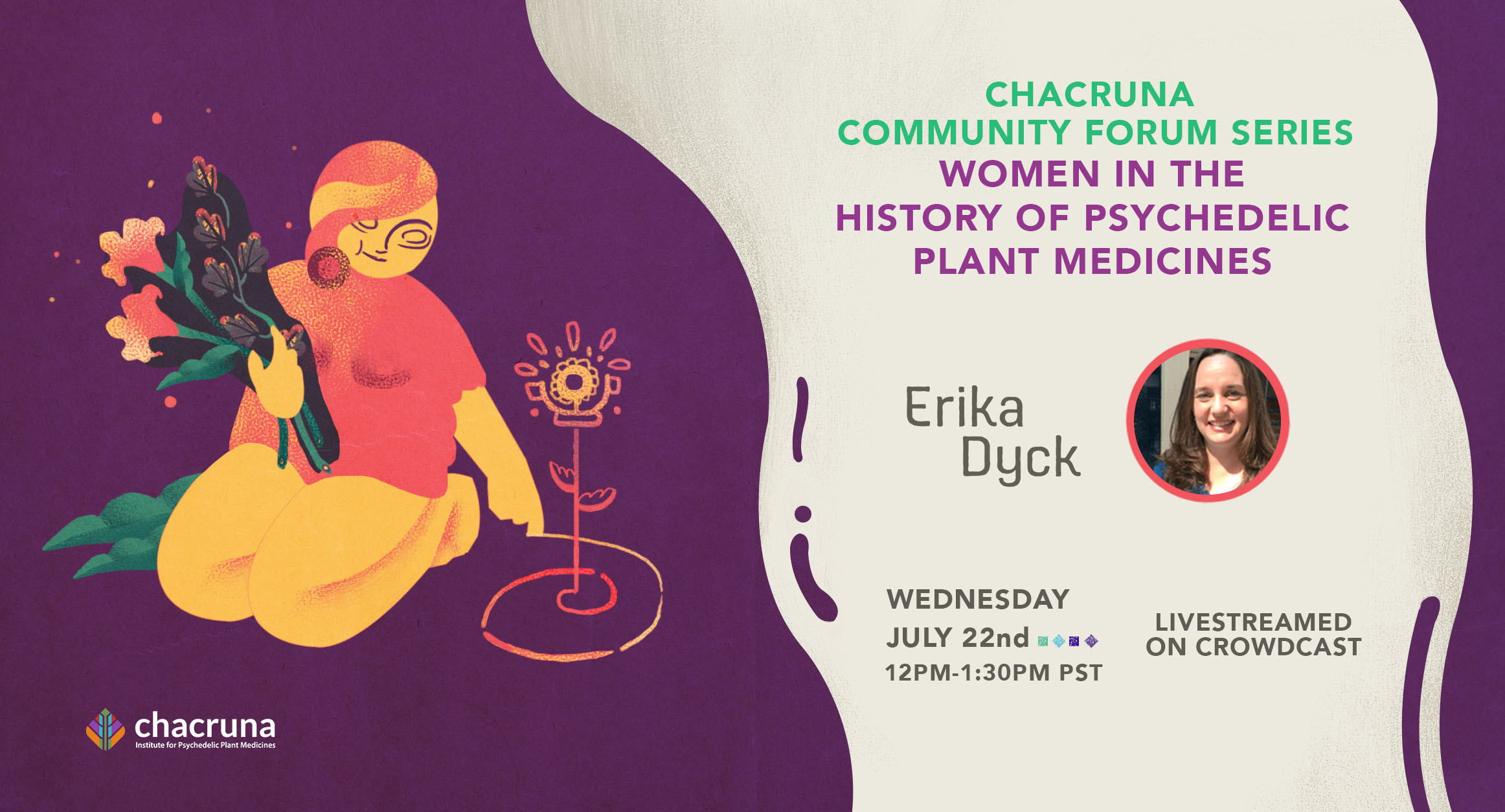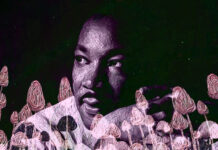- Meet Chacruna at Psychedelic Science 2025 - May 27, 2025
- Psychedelics and Attachment: Fundamentals, Implications, and New Frontiers - May 16, 2025
- Development Outreach Internship (OPEN) - May 6, 2025
Women in the History of Psychedelic Plant Medicines w/ Erika Dyck
Wednesday, July 22nd, from 12pm-1:30pm PST
Presented Live Online via Crowdcast
*REGISTER FOR TICKETS HERE*
Scholarships Available: APPLY HERE.
Event Description:
The study of psychedelics has experienced a welcome revival, and it is time that we use this opportunity to learn from our past. Who should lead the psychedelic renaissance, or conversely, what features do we want to avoid this time around? In this discussion I explore the past contributions of women in professional and non-professional settings to examine how the history of psychedelics came to privilege male perspectives. Far beyond simply being a feature of 1950s gender dynamics, I examine how women’s contributions were overlooked, buried, or taken for granted, in ways that have distorted our understanding of the history of psychedelic plant medicines. By paying closer attention to how women participated in trials, as patients, subjects, guides, nurses, or simply as intellectual collaborators, I consider what we have learned about psychedelics from the perspectives of women.
This presentation encourages us to rethink the history of psychedelics by identifying the contributions made by women, officially and unofficially, in this field. In the presentation I introduce a number of ways that scholars are beginning to revisit this past, and to rethink the ways that women participated in generating knowledge about psychedelic science and the culture of medical experimentation more broadly. It draws on new scholarship and research that has begun uncovering untold or under-acknowledged stories about psychedelic participants whose work went unrecognized at a time when their gender, youth, language or status in the field did not warrant their full participation.

Erika Dyck is a Professor and a Canada Research Chair in the History of Health & Social Justice. She is the author of several books, including: Psychedelic Psychiatry: LSD from Clinic to Campus (Johns Hopkins, 2008; University of Manitoba Press, 2011); Facing Eugenics: Reproduction, Sterilization and the Politics of Choice (University of Toronto, 2013), which was shortlisted for the Governor General’s award for Canadian non-fiction; Managing Madness: the Weyburn Mental Hospital and the Transformation of Psychiatric Care in Canada (University of Manitoba Press, 2017), which won the Canadian Historical Association Prize for best book in Prairie History; and with Maureen Lux, Challenging Choices: Canada’s Population control in the 1970s (McGill-Queens University Press, 2020). She is also the co-editor of Psychedelic Prophets: The Letters of Aldous Huxley and Humphry Osmond (2018); and A Culture’s Catalyst: Historical Encounters with Peyote (2016). Erika is the co-editor of the Canadian Bulletin for Medical History/Bulletin canadien d’histoire de la medicine and the co-editor of a new book series on the global history of alcohol and drugs, called Intoxicating Histories. Erika is also part of Chacruna’s Women, Gender Diversity, and Sexual Minorities Working Group, where is hosts the series “Women in the History of Psychedelic Plant Medicines.”
Art by Karina Alvarez.
Take a minute to browse our stock:
Did you enjoy reading this article?
Please support Chacruna's work by donating to us. We are an independent organization and we offer free education and advocacy for psychedelic plant medicines. We are a team of dedicated volunteers!
Can you help Chacruna advance cultural understanding around these substances?














